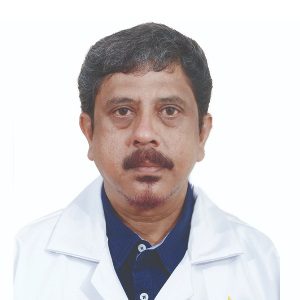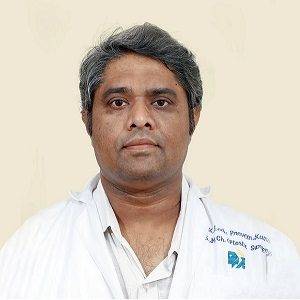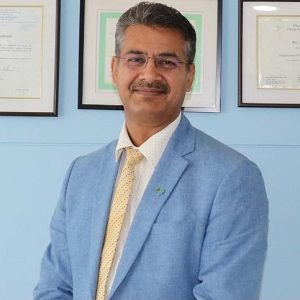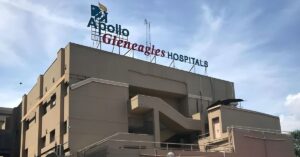Best Doctors in India for Tattoo Removal
- Plastic Surgeon and Cosmetic Surgeon, Chennai, India
- Over 14 years’ experience
Profile Highlights:
- Dr. Kannan Prema is a bright young cosmetic surgeon in Chennai, working on aesthetics.
- With over 14 years of experience as a board-certified cosmetic surgeon, Dr. Kannan Prema is the ideal choice.
- She provides surgical treatments like breast reduction, Rhinoplasty, removal of skin tags, buttock liposuction, etc.
- Plastic Surgeon and Cosmetic Surgeon, Chennai, India
- Over 16 years’ experience
Profile Highlights:
- Dr. Kumaresan M N is one of the finest Cosmetic Surgeons in Chennai with nearly 16 years of experience in the field.
- He ensures the best aesthetics for his patients.
- The Tamil Nadu Medical Council has had him as a member since 1992.
- Plastic Surgeon and Cosmetic Surgeon, Chennai, India
- Over 22 years’ experience
Profile Highlights:
- Dr. Leela Praveen Kumar is one of the top Plastic Surgeons in Chennai with more than 22 years of dedicated experience.
- The doctor is frequently visited by the patients for Breast implants, Vaser Liposuction, rhinoplasty, facelift, Breast Reduction, Bariatric Surgery, Microsurgery, Body contouring, Hand surgery, and Onco Reconstruction.
- Dr. Leela Praveen Kumar also manages a non-Surgical fat reduction procedure, known as Cryolipolysis.
- Plastic Surgeon and Cosmetic Surgeon, Chennai, India
- Over 40 years’ experience
Profile Highlights:
- Dr. Sundararajan M S is one of the best Plastic Surgeons in India, having practiced for more than 40 years.
- The doctor offers lipo filling, body contouring, non-Surgical facelift, tummy tuck, implants, etc.
- Dr. Sundarajan bagged the Best paper award in 2008 & 2013 and the other Gold Medal for his contribution to the field.
- Plastic Surgeon, Cosmetic Surgeon, Gurugram, India
- Over 25 years’ experience
Profile Highlights:
- Dr. Aditya Aggarwal has been an eminent figure in the Department of Plastic, Aesthetic, and Reconstructive Surgery.
- Throughout his career, he has invested in microsurgical procedures of physical amputation across the globe.
- He has worked in India, Berlin, Taiwan, and Japan, and his bright career echoes from each corner of the world.
Best Hospitals in India for Tattoo Removal
Narayana Superspeciality Hospital, Gurugram
- City: Gurugram, India
Hospital Highlights:
- Situated near DLF Cyber City, Gurugram, Narayana Superspecialty Hospital is one of the top medical facilities in the Delhi NCR region, catering to the needs of the people. Known for its commitment to quality medical care and patient service, the hospital is a state-of-the-art facility with planned and well-equipped sections, which includes a spacious OPD area as well as comfortable patient rooms.
- It is the closest super-specialty hospital from Indira Gandhi International Airport towards Gurugram, and also the nearest super specialty hospital from DLF Cyber City. It is also close to major residential areas in Gurugram.
- It is part of the renowned Narayana Health Group. Established in 2000, by Dr. Devi Shetty, a renowned cardiac surgeon, it has grown to be one fo India’s leading healthcare groups.
Sir Ganga Ram Hospital, New Delhi
- City: New Delhi, India
Hospital Highlights:
- Sir Ganga Ram Hospital, New Delhi is known to provide the latest medical procedures with the latest technology in all of its units.
- The hospital has a team of reputed doctors, nurses, and healthcare professionals that ensure that patients receive quality care at affordable costs.
- Staffed with a team of highly qualified doctors, dedicated nurses, and paramedical and non-medical staff, the hospital aims to lead in healthcare delivery, medical education, training, and research.
- As per the vision of the founder, the hospital also provides free treatment to the economically weaker sections of society.
- Sir Ganga Ram Hospital also provides training to young doctors under the Diplomate in National Board(DNB) program. The DNB program at the hospital was started in 1984 and it is known for currently running the maximum number of DNB specialties in the country. It also has the distinction of having the first bone bank in India.
KIMS Hospital, Hyderabad
- City: Hyderabad, India
Hospital Highlights:
- KIMS Hospital (a brand name of Krishna Institute of Medical Sciences) is one of the largest and best multi-speciality hospitals in Hyderabad. The hospital provides various treatments to an enormous number of patients.
- The hospital has a capacity of more than 3000 beds. KIMS Hospitals offers different healthcare services in more than 25 specialities and super specialities.
- The hospital is equipped with modern medical equipment and technology. It has robotic equipment to provide minimal invasive techniques for patients.
- The hospital is aimed at providing world-class healthcare facilities and services at an affordable cost for patients.
- The various specialities and departments of the hospital include neurosciences, gastroenterology & hepatology, robotic science, reproductive sciences, dental science, oncological sciences, organ transplantation, heart and lung transplantation and mother and child care.
Fortis Hospital, Shalimar Bagh
- City: New Delhi, India
Hospital Highlights:
- Fortis Hospital in Shalimar Bagh is a multi-super specialty hospital that strives to provide world-class patient care by leaving no stone unturned.
- Fortis, Shalimar Bagh, with 262 beds and a 7.34-acre footprint, provides the best level of medical care through its team of doctors, nurses, technicians, and management professionals.
Reliance Hospital, Mumbai
- City: Mumbai, India
Hospital Highlights:
- Reliance Hospital is one of the best super-specialty care hospitals in Navi Mumbai.
- The main purpose of this hospital is to become a trustworthy place for the best health and hope for society. The hospital is well connected to the suburbs of Mumbai and Navi Mumbai.
- The hospital has various specialty departments, viz., Accident & Emergency, Anesthesiology, Dental Services, Dermatology, Diabetology, Dietetics Nutrition, Endocrinology, ENT, Gastroenterology, General Surgery, Gynaecology And Obstetrics, Hepato Pancreato Biliary Surgery, Infectious Disease, Internal Medicine, Interventional Radiology, Laboratory Medicine, Minimal Access Laparoscopic Surgery, Nephrology, Neurosciences, Opthalmology, Orthopaedics, Paediatrics, Pain Management Palliative Care, Physical Medicine Rehabilitation, Plastic And Reconstructive Surgery, Psychiatry, Pulmonary Medicine, Radiology, Rheumatology, Transplant, Urology Andrology, Vascular Surgery
Lilavati Hospital & Research Centre, Mumbai
- City: Mumbai, India
Hospital Highlights:
- Lilavati Hospital & Research Centre is India’s premier multi-speciality tertiary care hospital and has been recognised as a global medical excellence centre.
- Lilavati Hospital & Research Centre has built an unrivalled level of trust with its patients over the years, thanks to a solid foundation that comprises cutting-edge facilities, the best medical competence, research, education, and charity endeavours.
- The hospital is quite proud of the fact that it now serves patients from all kinds of backgrounds, not just from the United States but from all around the world.
- The hospital has a total of 323 beds, one of the largest Intensive Care Units (ICUs), 12 Operation Theatres with modern amenities, over 300 consultants, and almost 1,800 personnel.
Venkateshwar Hospital, Dwarka, New Delhi
- City: New Delhi, India
Hospital Highlights:
- State-of-the-art technology and devoted healthcare professionals have been brought together under one roof at Venkateshwar Hospital to provide genuine medical care. The hospital’s professionals work together as a team to deliver the best possible treatment to their patients, using the most sophisticated equipment and information technology.
- Venkateshwar Hospital’s mission is to attain global excellence in healthcare by employing evidence-based, ethical clinical practices and cutting-edge technology by a team of highly skilled experts.
MGM Healthcare, Chennai
- City: Chennai, India
Hospital Highlights:
- Located in Chennai, India, MGM Healthcare is a top multispecialty hospital that provides all medical services under one roof.
- Since its founding in 2019, MGM Healthcare has quickly become a leading national referral centre, creating several innovative flagship initiatives.
- MGM Healthcare combines next-generation medical and digital technologies to provide better patient results.
- With 12 centres of excellence, more than 400 inpatient beds, 100 intensive care unit beds, and 24/7 emergency care, MGM Healthcare leaves no chance in redefining the patient experience in Chennai.
- MGM Healthcare boasts 250+ expert doctors across 30+ departments, including Cardiology, Pulmonology, Neurology, Obstetrics & Gynaecology, and more.
- They house 12 specialized Centres of Excellence, including Neurosciences, Orthopaedics, and Multi-Organ Transplantation.
- Their team of doctors, nurses, and paramedics works together to give every patient individualized treatment.
Apollo Hospitals, India
- City: India
Hospital Highlights:
- Apollo Hospitals is a private healthcare group in India, with its headquarters based in Chennai. Established in 1983 by Dr. Prathap C. Reddy, the group offers a wide range of medical treatments and services across various specialties.
- It is renowned for emphasizing innovation and utilizing cutting-edge medical technologies into patient treatment.
- Known as India’s first corporate hospital, Apollo Hospitals is often credited for pioneering the private healthcare revolution in the country.
- With clinics and hospitals located all throughout India, Apollo Hospitals is a nationwide healthcare organization. Its presence can also be found in foreign countries.
- Preventive health examinations, medical and surgical treatment, and diagnostic centres are just a few of the services that the Apollo group provides.
- The group has several centres of expertise, including Cardiac Sciences, Neurosciences, Orthopedics, Emergency Care, Cancer Care, and Organ Transplantation.
Apollo Gleneagles Hospitals, Kolkata
- City: Kolkata, India
Hospital Highlights:
- Established in 2003, Apollo Gleneagles Hospitals is a 750-bed multispecialty tertiary care hospital situated in Kolkata.
- With 33 Centres of Excellence and more than 50 specialties, Apollo Gleneagles Hospitals, Kolkata is capable of handling all sorts of patients.
- This tertiary care hospital, which is a 100% subsidiary of Apollo Hospitals Enterprise Ltd., India, is regarded as one of Kolkata’s top hospitals.
- The facility is a complete blend of cutting-edge technology, state-of-the-art infrastructure, and genuine hospitality.
- Focusing on numerous specialties, the hospital provides all-inclusive medical treatments supported by cutting-edge technology and a staff of highly qualified medical specialists.
- Patients across the globe come to Apollo Gleneagles Hospitals Kolkata for their treatment. Moreover, international patients receive full attention and assistance for their treatment and are provided with a hassle free experience.
- Apollo Gleneagles Hospitals, Kolkata is the only hospital in Eastern India to hold the Joint Commission International (JCI) certificate.
- It is also the only hospital in Kolkata to hold the NABL accreditation in six different categories, which includes Clinical Biochemistry, Clinical Pathology, Hematology & Immunohematology, Microbiology & Serology, and Histopathology & Cytopathology.
- Furthermore, Apollo Gleneagles Hospitals, Kolkata is known for performing the first ever Reverse Shoulder Prosthesis Replacement in East India.
Tattoo Removal
Many people today, especially millennials, choose to have tattoos. However, later many of them can regret their decisions. In such cases, techniques such as laser surgery, surgical removal and dermabrasion can be used for tattoo removal.
Tattoo removal is complicated because the ink is placed beneath the skin’s top layer. If you’re interested in this procedure, you will need to consult a dermatologist. Remember not to attempt this on your own. There are tattoo removal creams and home treatments; however, they are not likely to be effective and can also lead to skin irritation or other such reactions.
Purpose
Tattoo removal is generally considered by people who regret their tattoo or people who are unhappy with the appearance of their tattoo. Sometimes when a tattoo gets faded or blurred, a person can decide that the tattoo doesn’t fit his/her current image.
Sometimes, people can consider tattoo removal, if they develop an allergic reaction to their tattoo or other complications, like an infection.
Preparation
If you are considering tattoo removal, first you will need to talk to a dermatologist and discuss the options. It is important to discuss about the tattoo ink as some inks are more responsive to laser treatment as compared to others. Small tattoos are also usually fit for surgical removal, while large tattoos can require another method.
Procedure
Generally, tattoo removal is usually performed as an outpatient procedure with the use of local anesthesia. The most common techniques used for this procedure are laser surgery, surgical removal and dermabrasion.
Laser surgery
Q-switched lasers which can release energy in a single, powerful pulse are used quite often for tattoo removal. Sometimes, a special type of laser, which is termed as a Q-switched Nd: YAG can be used on darker skin. This helps in avoiding changing the skin’s pigment permanently.
Before the treatment, the skin will be numbed with a local anesthetic. Then a powerful pulse of energy is applied to the tattoo for heating and shattering the tattoo ink. Various lasers and different wavelengths might however be required for tattoos that are multicolored.
After the procedure, you can notice swelling and in some cases, even blistering or bleeding. To help promote healing, one can choose antibacterial ointment. You might need multiple sessions for lightening the tattoo and in some cases, it may not be possible to erase the tattoo completely.
Surgical removal
During surgical removal method, the skin will be first numbed with an injection of a local anesthetic. The tattoo is then removed with a scalpel, after which the edges of the skin are stitched back together. After the procedure, you can use the antibacterial ointment as it can help in healing.
Though surgical tattoo removal is effective, it leaves a scar and might be not practical for larger tattoos.
Dermabrasion
During dermabrasion method, the tattooed area is typically chilled until it is numb. Then the tattooed skin is sanded down to deeper levels with the help of a high-speed rotary device with an abrasive wheel or brush. This will allow the tattoo ink to leach out of the skin.
After the procedure, the affected area can feel sore and raw for some days. Around 2-3 weeks is required for a complete recovery. Dermabrasion is not used as commonly as the other methods, as it generally produces unpredictable results and less effective outcomes.
Since tattoos are meant to be permanent, complete removal can be difficult. It is likely that a small degree of scarring or skin color variation will remain, regardless of the method.
After the Procedure
You will receive specific aftercare instructions from your technician.
It is best to apply an antibacterial ointment to your skin for several days after each procedure. The ointment can help in healing your skin and it reduces the risk of infection as well. Each time you apply the ointment, remember to change the dressing as well.
For a minimum of the next two weeks after the procedure:
- Keep the treated area dry and clean
- Do not expose the treated area to direct sunlight.
- Do not wear clothing that is too tight
- Avoid picking at any scabs or blisters that form.
















